Business Law: Analyzing Agency, Authority, and Third-Party Claims
VerifiedAdded on 2022/09/09
|5
|803
|41
Homework Assignment
AI Summary
This assignment analyzes a business law scenario involving a customer (Joe), a salesperson (agent), and a store (Big Screen City Ltd., the principal). The issue revolves around the salesperson's misrepresentation of the store's return policy, leading Joe to purchase a television. The assignment identifies the agent, principal, and third party, clarifying that the salesperson acted on behalf of the store and Joe is the third party. It then explains that the scenario is an example of apparent authority, where the store's conduct led Joe to reasonably believe the salesperson had the authority to make the statement about the return policy, even if it contradicted actual store policy. The conclusion asserts that Joe's rights and interests are protected due to his reasonable reliance on the salesperson's statement.
1 out of 5
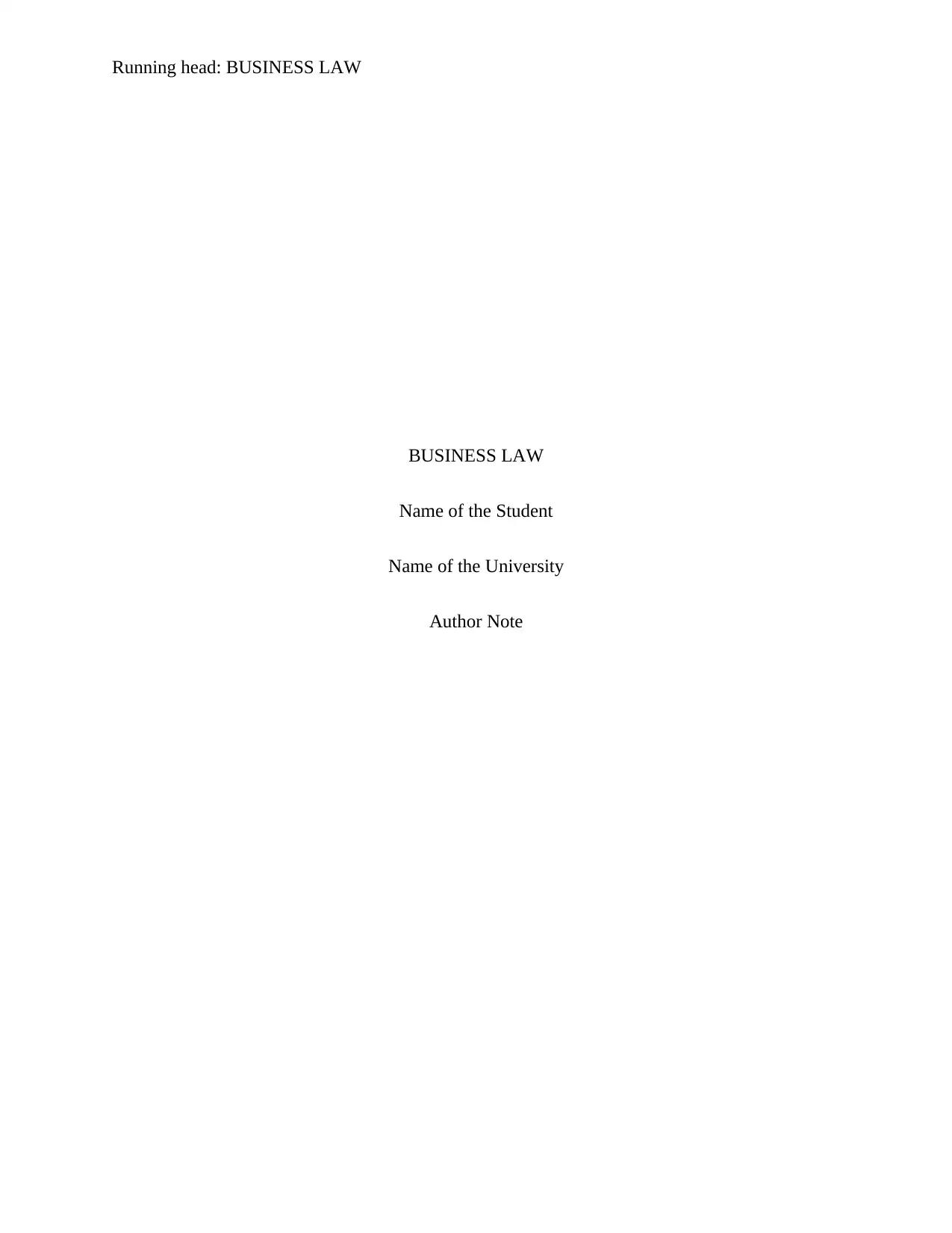
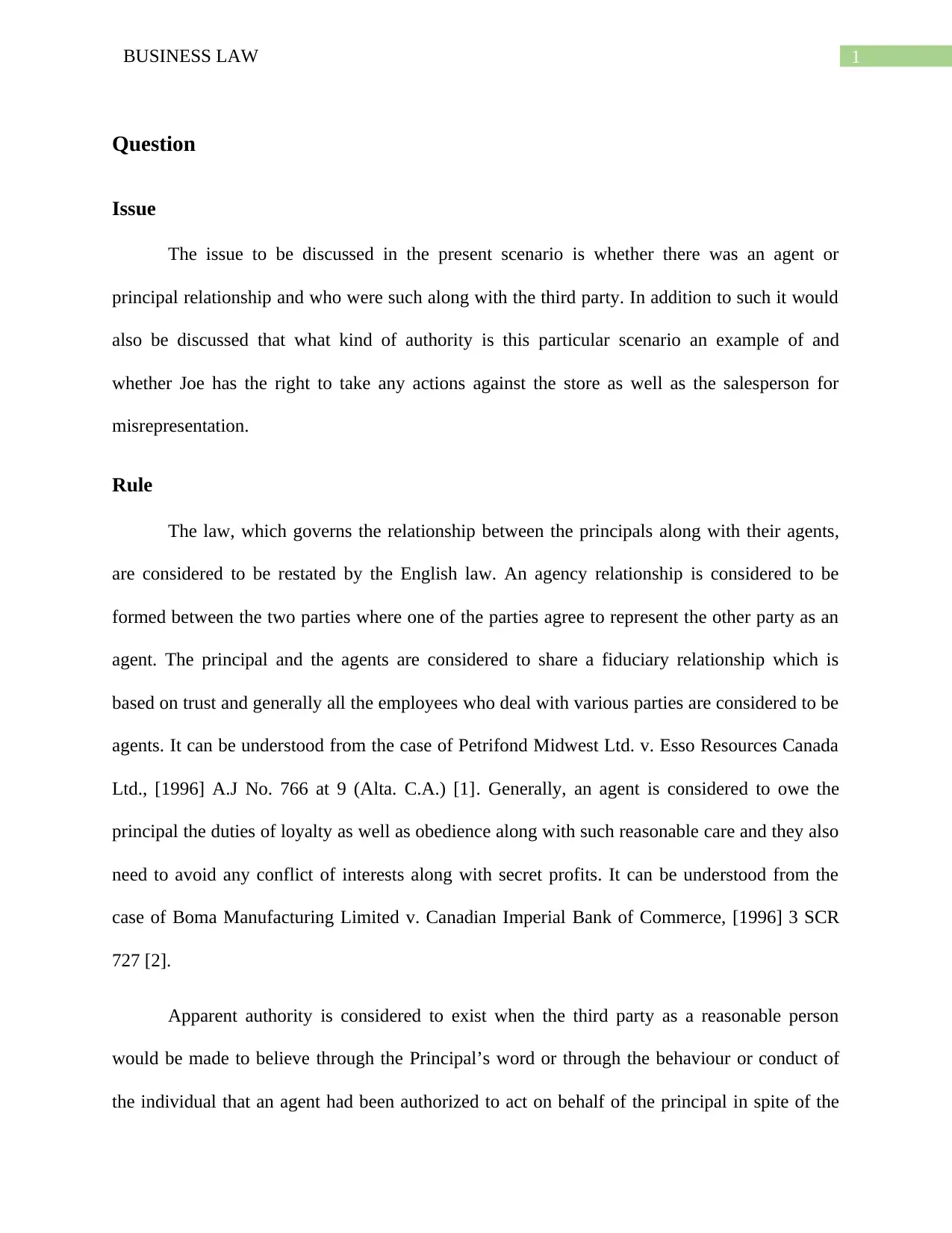
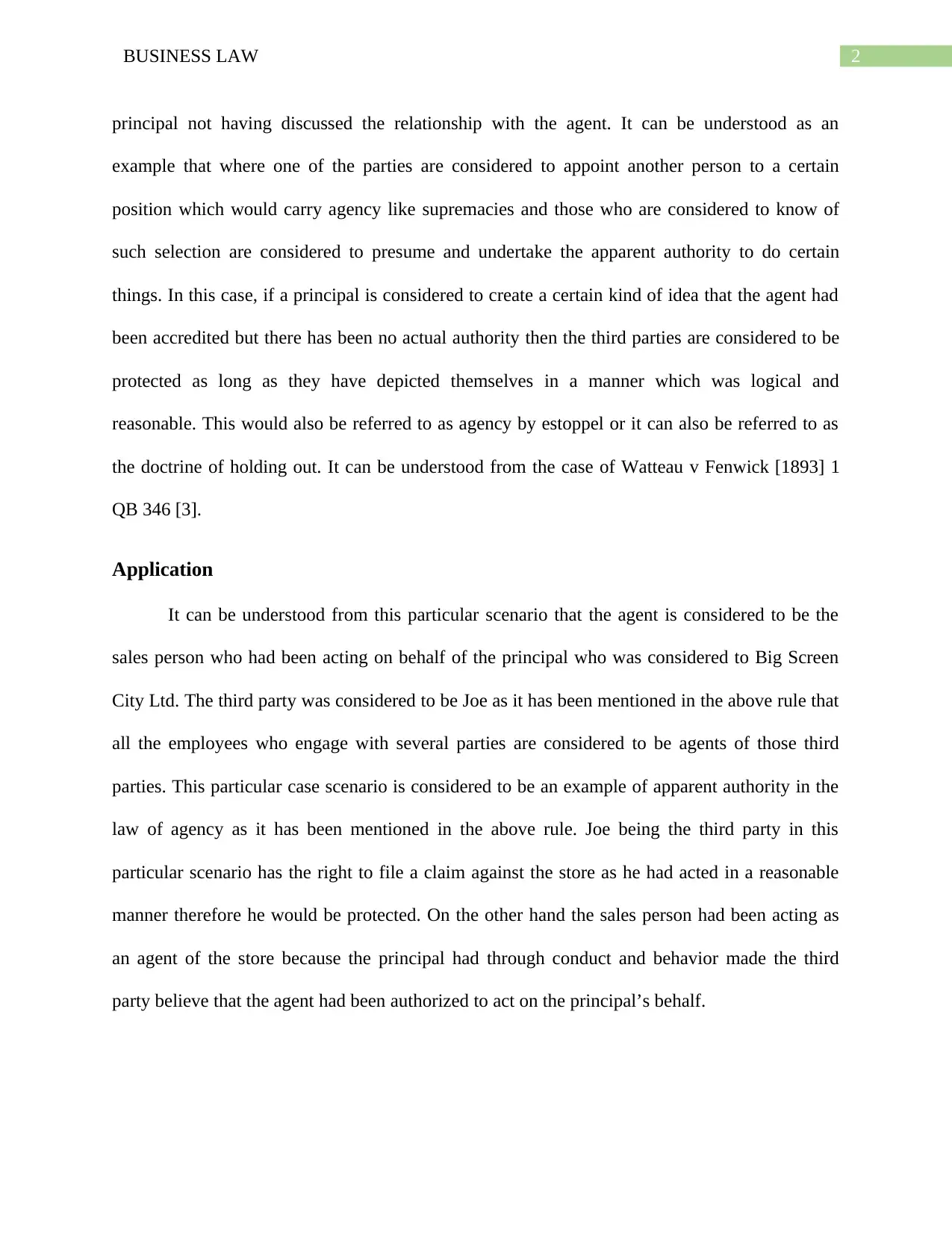

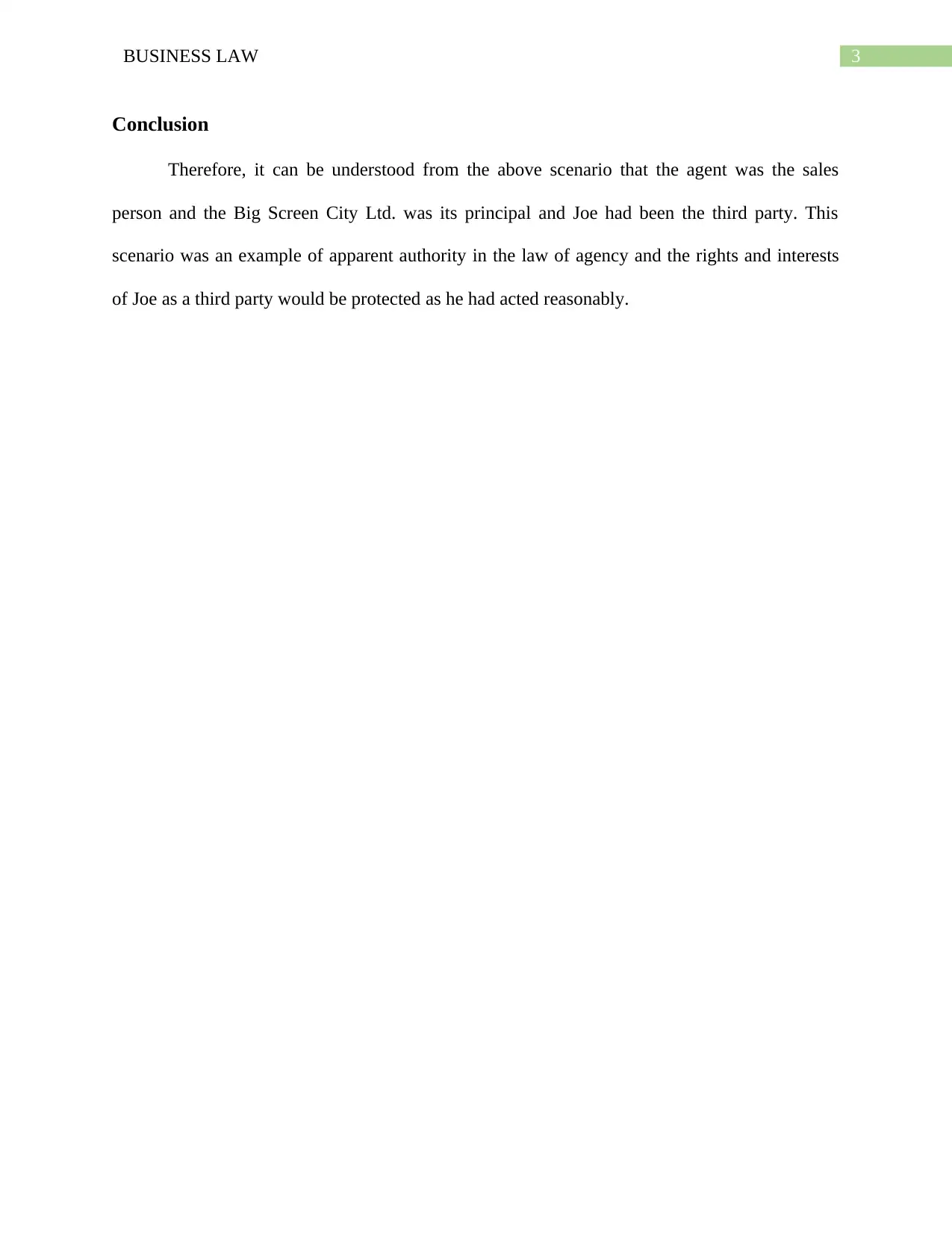
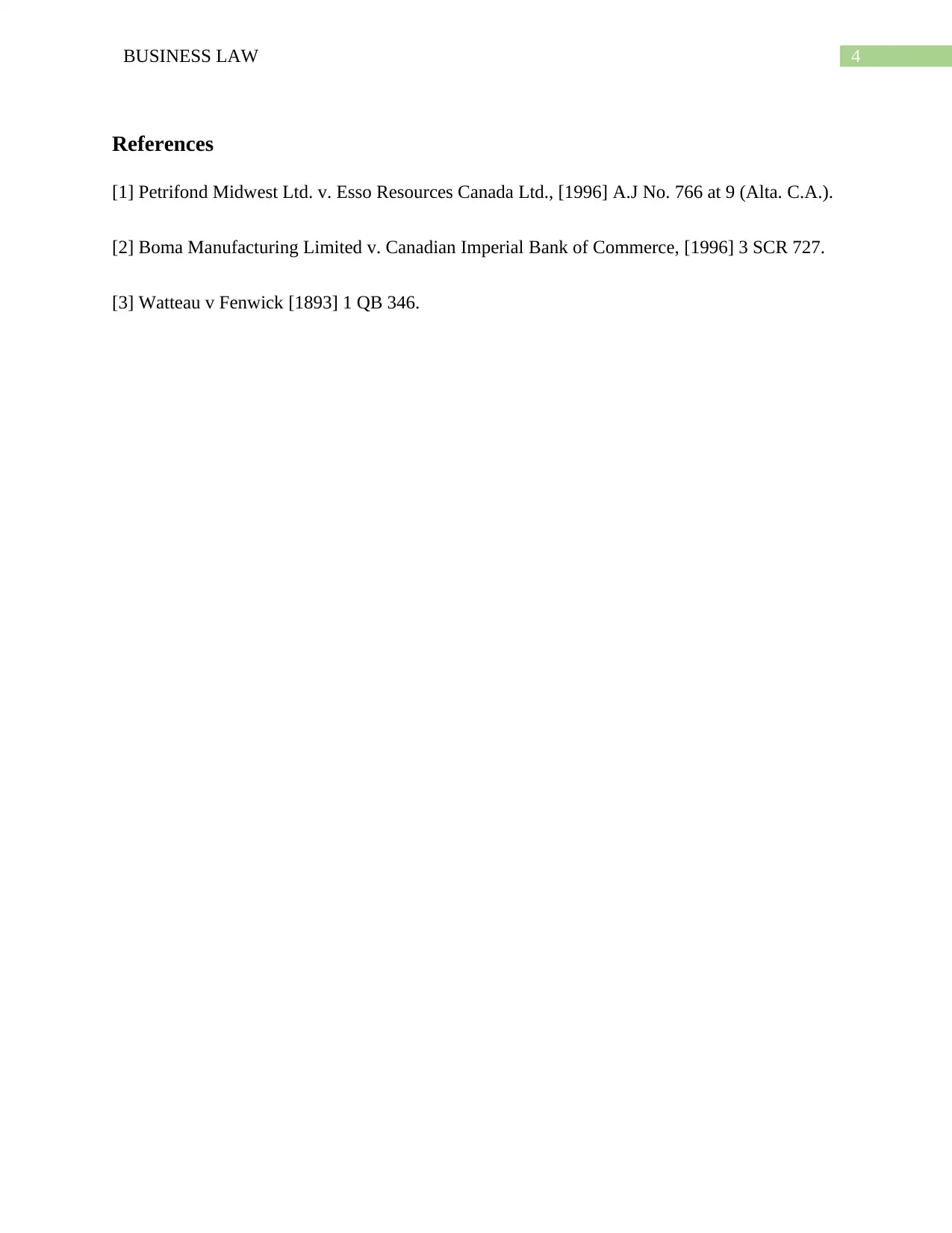






![[object Object]](/_next/static/media/star-bottom.7253800d.svg)